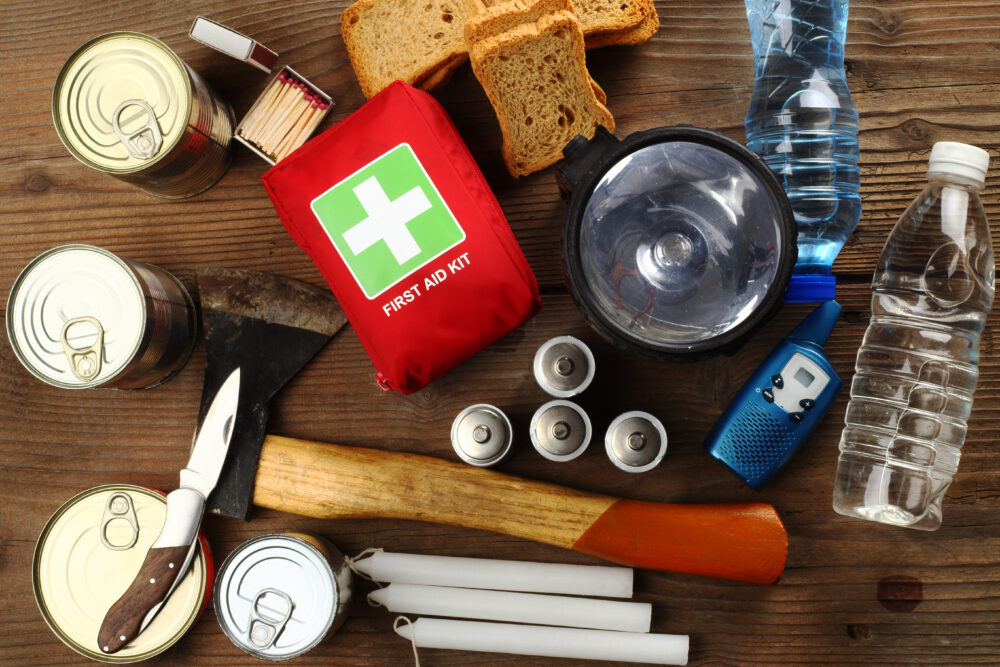Living in Vancouver, WA, offers its own unique set of challenges and rewards. Being prepared for emergencies is crucial in this vibrant city, where natural disasters such as earthquakes, floods, and severe weather events can pose significant risks. Here’s a comprehensive guide to help you and your family stay safe and well-prepared for any situation.
Understanding Local Risks
Vancouver, WA, is situated in a region prone to various natural hazards. One of the most significant risks is the potential for seismic activity due to the nearby Cascadia Subduction Zone, which could produce substantial earthquakes. Flooding is another concern, particularly during heavy rainfall or when snowmelt combines with rain. Additionally, windstorms and severe weather conditions can impact the area.
Understanding these risks is the first step in effective emergency preparedness. Familiarize yourself with the specific hazards of your area by consulting resources like the City of Vancouver’s Emergency Preparedness webpage and the Clark County Disaster Plan Overview. This will help you anticipate and plan for potential emergencies more effectively.
Creating an Emergency Plan
Developing a comprehensive emergency plan is essential for every household. Your plan should include:
- Emergency Contacts: Compile a list of essential contacts, including family members, neighbors, and local emergency services. Make sure everyone in your household knows how to reach these contacts and what to do in different scenarios.
- Evacuation Routes: Identify multiple evacuation routes from your home and workplace. Practice these routes regularly with your family to ensure everyone knows how to navigate them under stress.
- Meeting Points: Designate meeting points both within and outside your neighborhood where family members can regroup if separated.
- Emergency Kit: Prepare an emergency kit with essentials such as water, non-perishable food, medications, first aid supplies, a flashlight, batteries, and a battery-powered radio. Update this kit regularly and ensure it is easily accessible.
- Shelter Information: Know the locations of local shelters and have a plan for how to reach them if necessary.

Preparing Your Home
Making your home resilient to disasters can reduce damage and increase safety. Here are some tips:
- Secure Heavy Items: Fasten heavy furniture, appliances, and other items to walls to prevent them from falling during an earthquake or severe weather.
- Check Utilities: Ensure you know how to turn off your gas, water, and electricity in case of emergencies. Regularly inspect your home’s utilities and repair any issues promptly.
- Reinforce Structures: Strengthen your home’s foundation and walls if necessary. Consider retrofitting your home to better withstand seismic activity.
- Flood Prevention: If your home is in a flood-prone area, use sandbags, sump pumps, and other flood prevention measures. Keep drainage systems clear and maintain proper grading around your property.
Staying Informed
Keeping up-to-date with emergency information is crucial. Here’s how to stay informed:
- Weather Alerts: Sign up for local weather alerts through the National Weather Service and local news channels. Apps like the Emergency Alert System (EAS) can provide real-time updates.
- Community Resources: Follow local emergency management agencies on social media and check the City of Vancouver’s and Clark County’s official websites for updates and resources.
- Radio Stations: Keep a battery-powered or hand-crank radio tuned to local emergency frequencies. This can be vital if other communication systems fail.
First Aid and Emergency Skills
Knowing basic first aid and emergency skills can be a lifesaver. Consider these steps:
- First Aid Training: Take a first aid and CPR course. The American Red Cross offers courses that can prepare you to handle injuries and medical emergencies.
- Fire Safety: Learn how to use a fire extinguisher and practice fire drills at home. Install smoke detectors and carbon monoxide detectors, and ensure they are functioning properly.
- Basic Survival Skills: Understand basic survival skills, including how to start a fire, purify water, and signal for help. These skills can be crucial if you find yourself in a remote or difficult situation.
Community Involvement
Being part of a prepared community enhances overall safety and resilience. Engage in these community-focused actions:
- Volunteer: Participate in local emergency preparedness drills and volunteer with organizations such as the Community Emergency Response Team (CERT).
- Neighborhood Groups: Join or form neighborhood watch or preparedness groups. This can help coordinate efforts and resources in times of crisis.
- Share Information: Educate friends, family, and neighbors about emergency preparedness. Sharing knowledge can enhance collective readiness and support.
By following these tips and utilizing local resources, you can ensure that you and your family are well-prepared for emergencies in Vancouver, WA. Stay informed, plan ahead, and engage with your community to enhance your safety and resilience in the face of potential disasters.
